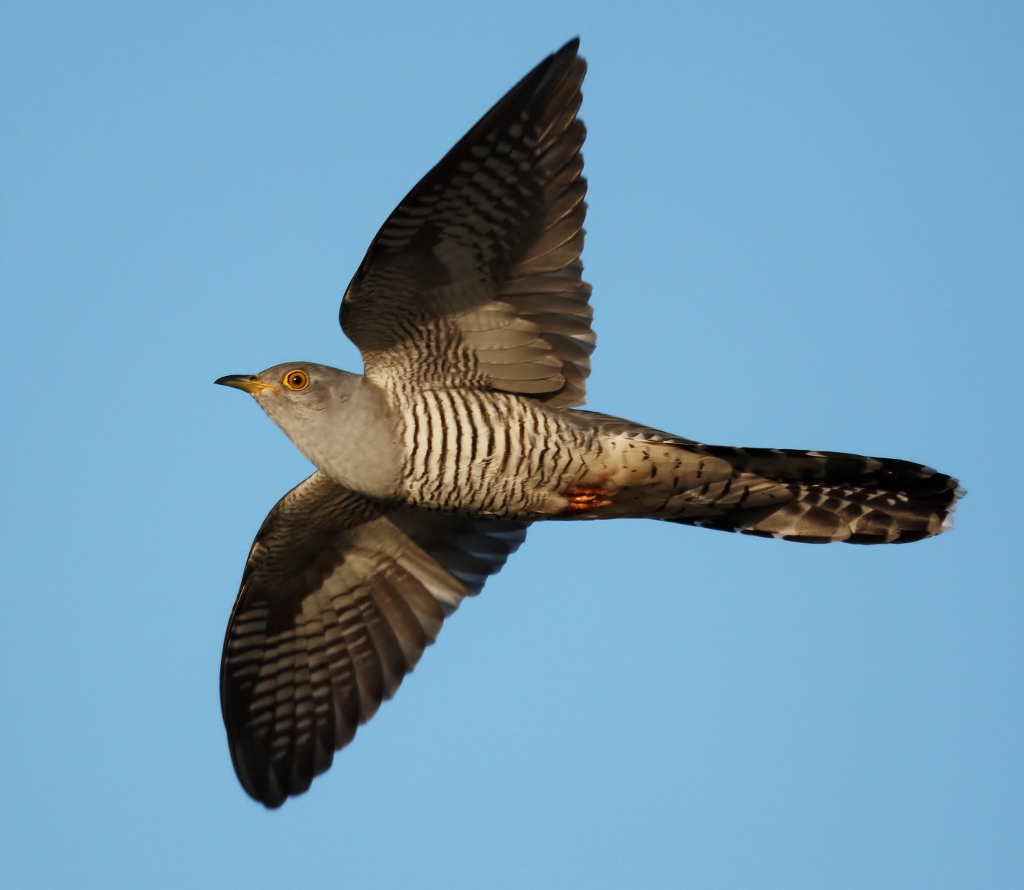 |
| Photo by Chris Romeiks (Vogelart) |
Common name:
common cuckoo (en); cuco-canoro (pt); coucou gris (fr); cuco común (es); kuckuck (de)
Taxonomy:
Order Cuculiformes
Family Cuculidae
Range:
This species is found breeding throughout Europe, with the exception of Iceland, and in most of northern and central Asia as far east as Japan and as far south as Iran, northern India and southern China. There are also breeding population in north-west Africa, in Morocco, northern Algeria and Tunisia. They migrate south to winter in sub-Saharan Africa, India and south-east Asia.
Size:
These birds are 32-34 cm long and have a wingspan of 55-60 cm. The males weigh 110-140 g and the females weigh 95-115 g.
Habitat:
The common cuckoo is found in a wide range of habitats, including temperate and tropical forests, savannas, scrublands, grasslands, pastures, marshes and rural gardens. They are present from sea level up to an altitude of 3.800 m.
Diet:
They mainly feed on adult and larval insects, but will also take spiders and worms.
Breeding:
Common cuckoos are brood parasites, laying their eggs on the nests of other birds. There are over 100 reported hosts, including many common passerines such as reed warblers Acrocephalus sp., meadow pipit Anthus pratensis, white wagtail Motacilla alba, European robin Erithacus rubecula or common redstart Phoenicurus phoenicurus. Each female specializes in a particular host species and lays up to 12 eggs in 12 different nests, the eggs being similar to those of the host species. The cuckoo’s egg is incubated by the host and hatches after 11-13 days, before the host’s eggs start to hatch. The chick will roll the other eggs out of the nest by pushing them with its back over the edge. The chick is fed by its host until fledging, which takes place 17-21 days after hatching.
Conservation:
IUCN status – LC (Least Concern)
This species has an extremely large breeding range and a global population estimated at 25-100 million individuals. In Europe, the population has undergone a moderate decline since the 1980s, but overall the common cuckoo is not threatened at present.







